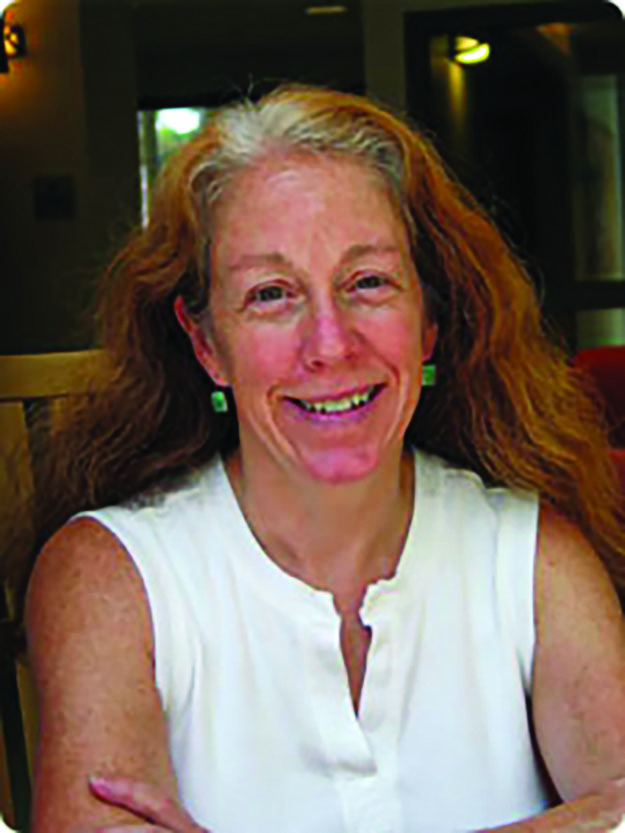At Bowdoin and Beyond: Suzanne Lovett ’80
March 1, 2024
 Courtesy of Suzanne Lovett
Courtesy of Suzanne LovettGraduating in 1980, just less than a decade after Bowdoin switched to co-education in 1971, Suzanne Lovett entered Bowdoin at a time of great change. Now, 44 years later as an associate professor of psychology and the chair of the psychology department at the College, Lovett finds joy in imparting the same liberal arts instruction on students that she received—and loved—as a student.
Originally from New Hampshire, Lovett learned about Bowdoin from driving by campus during her family trips to Hermit Island every summer. When it came time to apply to college, she was discouraged from applying to prestigious higher education institutions like Bowdoin by her guidance counselors, despite being valedictorian of her class. Paying no heed to their doubts, Lovett chose Bowdoin for its strong financial aid packages, as she was the first in her family to attend college.
Lovett said she instantly bonded with her floormates in Maine Hall when she arrived on campus, despite the traditional, male-dominated and party-centered orientation culture cultivated by fraternity rush week. Although there were no orientation trips at the time, Lovett made connections quickly, noting that her fellow students were kind and accepting. She also appreciated meeting students from diverse backgrounds after growing up in a predominantly white state.
A highlight of her experience, however, was the relationships she built with faculty. Lovett stayed on campus during the summers before her junior and senior year to conduct research with the psychology department.
“I was really super shy. I got to know the professors really well, [and] I felt comfortable with them…. It just felt like people really valued teaching, [and] the professors value their relationships with their students,” Lovett said. “I quickly realized I had landed in the right place totally by chance; Bowdoin let me come out of my shell a little bit. If I had gone to a big university, I probably would have just been lost.”
Lovett admitted that she was not aware that Bowdoin had recently gone co-ed when she started there.
“It seemed like Bowdoin went co-ed really well,” Lovett said. “I really felt like there were already female faculty. I thought everybody seemed to be treated pretty equitably.”
She remembers her first surgeries on rats in a neuroscience class as one of her formative college memories. She also enjoyed working on her honors project, in which she spent spring break in Lewiston interviewing local children.
“This is stuff that you don’t get to do at a big research university…. [This] is what makes places like Bowdoin really special,” Lovett said.
After attending Bowdoin as a student—double majoring in math and psychology—Lovett traveled to the West Coast to pursue a doctorate in psychology at Stanford University. While she enjoyed the change of scenery, she knew that she wanted to eventually return to the East Coast to teach as a professor.
“I knew I did not want to be at a place like Stanford. There were some faculty there who would say that your ambition should be [to work] at a big research university. It’s all about research. It’s all about grants, but I really like teaching,” Lovett said. “So, I knew I wanted to be at a liberal arts college.”
With this realization, Lovett started teaching psychology at Hamilton College. Even though she enjoyed her interactions with the students and faculty, she noticed some habits and lingering attitudes from when Hamilton was once a male-only institution.
“They went co-ed in a very different way. Hamilton was an all male school, and literally across the street was an all female school. The psych department at Hamilton was very traditional, and the sister school had no grades and was very alternative,” Lovett said. “When they merged the two schools, it just didn’t work…. It felt like sometimes there were people who felt like [there was] real psychology and [there was] the female version of psychology.”
Three years after working as an assistant professor of psychology at Hamilton, Lovett found herself back in Brunswick, but this time as a professor in the psychology department at Bowdoin.
“I now can’t imagine living in any place other than Maine. I love Maine so much,” Lovett said. “The funny thing was my advisor when I was at Bowdoin said to me, ‘You have to stay in academia because you will be very frustrated if you leave academia and interact with people who don’t want to talk about big ideas.’ She was right.”
Alongside teaching, Lovett has served as the faculty lead on the College’s transition to online registration and helped develop the Bowdoin Advising in Support of Excellence first-year advising program.
“I just feel like I’ve done so many things here, in addition to teaching…. I love doing these kinds of projects that you typically wouldn’t do at a big research university and get to work with [Information Technology], [Internal Relations] and people in the Dean of Students Office.”
Lovett said being the lead in transitioning the College to an online registration system was one of the most challenging parts of her career so far, but she ultimately found it rewarding to witness the change enacted at the College as a result.
Reflecting on her career as both a student and a professor, Lovett encourages current students at Bowdoin to not limit their curiosity and ambitions.
“I can’t tell you how many times students say, ‘I don’t do math,’ and they’re mostly always females,” Lovett said. “It’s in their mind that there’s this area that they don’t have the ability to succeed in…. Don’t put limitations on yourself that are being imposed by societal messages.”

Comments
Before submitting a comment, please review our comment policy. Some key points from the policy: